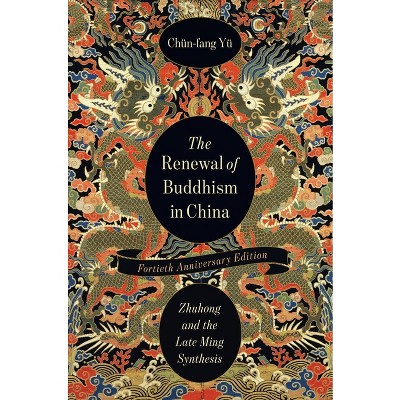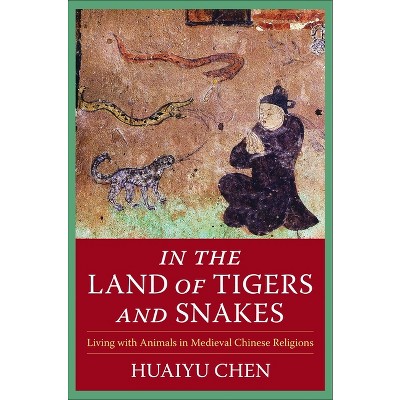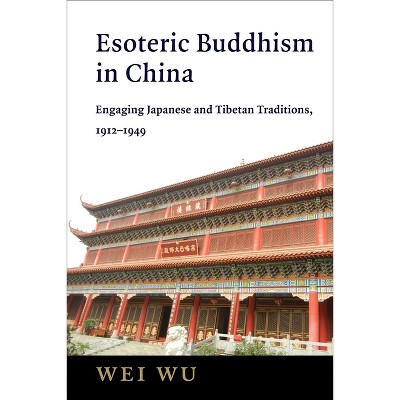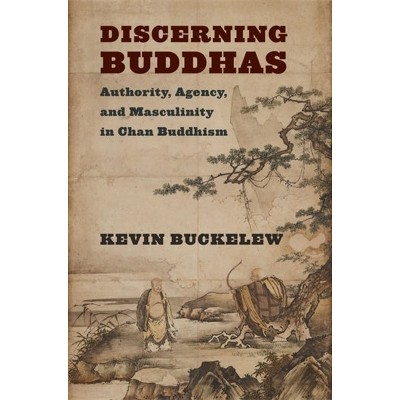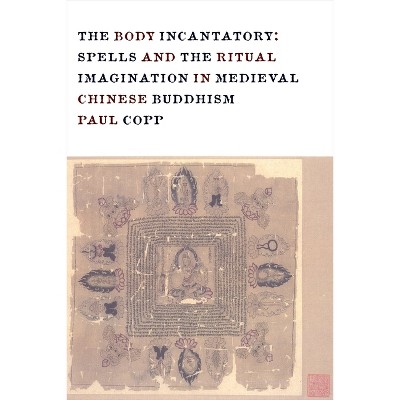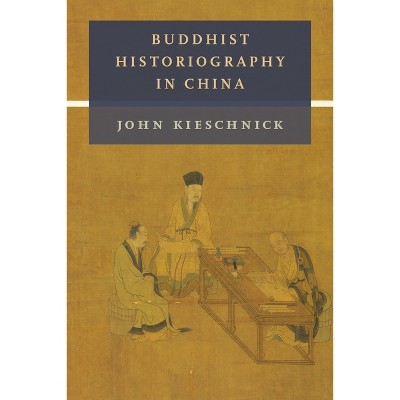Sponsored

Kings of Oxen and Horses - (The Sheng Yen Chinese Buddhist Studies) by Meir Shahar
In Stock
Sponsored
About this item
Highlights
- For centuries in China, people beseeched deities to protect the draft animals on which they relied.
- About the Author: Meir Shahar is the Shoul N. Eisenberg Chair for East Asian Affairs at Tel Aviv University.
- 376 Pages
- Religion + Beliefs, Buddhism
- Series Name: The Sheng Yen Chinese Buddhist Studies
Description
About the Book
"For millennia, draft animals have occupied a crucial role in both quotidian life and the religious imagination. In China, the prayers and rituals for animal welfare were most frequently addressed to two deities: the Horse King (Mawang), divine protector of equines (horses, donkeys, and mules), and the Ox King (Niuwang), tutelary deity of bovines (oxen and buffaloes). Kings of Oxen and Horses is a history of the worship of these two gods, their myths, and their cults. By surveying the diverse social and professional groups that venerated the divine protectors of the livestock-peasants, merchants, cavalrymen, muleteers, donkey drivers, coachmen, and veterinarians-Meir Shahar explores how the Chinese conception of animals has evolved alongside (and because of) cultural and religious changes. The discussion correlates ecology and religion, demonstrating that the cults' geographical spread was related to the animals' habitats: the Horse King was worshiped where equines were the principal draft animals, whereas the Ox King flourished where bovines were relied upon. The focus is upon the late-imperial period (roughly the 16th century onwards) but extends backward to the origins of the two deities in ancient China and India. The Horse King is a descendant of an Indian deity (the Horse-Headed Avalokiteâsvara), whereas the Ox King's scriptures associate him with no less a figure than the Buddha âSåakyamuni, whose Sanskrit epithet naråaròsabha ("Bull of a Man") was rendered into Chinese as Niuwang (Ox King)"--Book Synopsis
For centuries in China, people beseeched deities to protect the draft animals on which they relied. Across social classes--from peasants plowing the fields to merchants transporting goods through soldiers riding into battle--animals were essential to daily life and so took on a central place in the religious imagination. Prayers and rituals for animal well-being were most frequently addressed to the Horse King, divine protector of horses, donkeys, and mules, or the Ox King, who watched over oxen and buffaloes.
Kings of Oxen and Horses is a history of these two gods: their myths, their rituals, and their worshipers. It examines the place of draft animals in Chinese and Buddhist religious traditions and, in so doing, sheds new light on human interaction with nonhuman animals more broadly. Meir Shahar traces the history of the Horse and Ox Kings from late imperial China back to ancient India, revealing the long-term Buddhist influence on Chinese rural religion. He explores the myth of the draft animal as incarnate god, showing how Buddhism transmitted a belief in the sanctity of cattle and a taboo on beef from India to China. Shahar considers the ties between humans and their animal companions through the prism of religious practice, and he draws illuminating comparisons to other world religions. Bridging the gap between animal studies and religious studies, this book is a major contribution to both.Review Quotes
Kings of Oxen and Horses ultimately reveals the long-lasting and nuanced impact of Indian Buddhism on Chinese religious practices, an impact that affected not only how people understood themselves but also how they understood their animals.-- "H-Buddhism"
Shahar's richly illustrated book is a gem in a growing body of studies on the nonhuman animal in Chinese history and religious culture. Tracing the pedigree of tutelary horse- and ox-protecting deities to India and medieval Tantric Buddhism, Shahar's analysis, supported by fascinating fieldwork findings, underscores the need to study "Chinese" animals beyond ethnic, geographical, and political borders.--Roel Sterckx, author of The Animal and the Daemon in Early China
Using a wide spectrum of sources and keen storytelling, Shahar deftly reveals a forgotten and neglected world: the thriving cults of the Horse King in northern China and the Ox King in southern China. Shahar's extensive research transports the reader out of the armchair and into the field, giving a vivid sense of the scope and practice of rural religion, the overwhelming importance of domestic animals in everyday life, and the extensive influence that Buddhism had on Chinese religion.--Keith N. Knapp, coeditor of The Cambridge History of China: Volume 2, The Six Dynasties, 220-589
In this remarkable book, Meir Shahar takes readers on a guided tour of China's haunted and holy territories, from urban cities to the countryside and from the distant past to the present day. Kings of Oxen and Horses is a lively and essential exploration of human-animal relationships in the Buddhist, Daoist, and rural religious traditions of China.--Benjamin Brose, author of Embodying Xuanzang: The Postmortem Travels of a Buddhist Pilgrim
About the Author
Meir Shahar is the Shoul N. Eisenberg Chair for East Asian Affairs at Tel Aviv University. His books include Crazy Ji: Chinese Religion and Popular Literature (1998); The Shaolin Monastery: History, Religion, and the Chinese Martial Arts (2008); and Oedipal God: The Chinese Nezha and His Indian Origins (2015).






